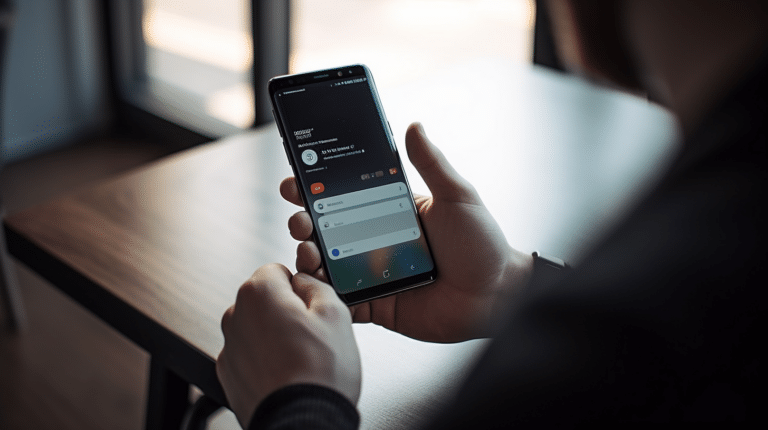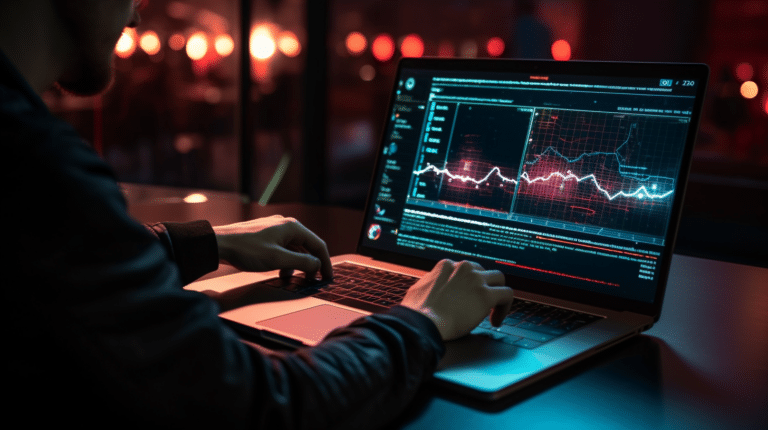As technology advances and people become increasingly reliant on the internet for various purposes, protecting one’s privacy and data has become a top priority. One popular method for safeguarding online activities is by using a Virtual Private Network (VPN). While VPNs are designed to provide an encrypted connection and increase internet security, many users wonder if VPNs are impenetrable or if they can be hacked.
VPN services employ different encryption protocols to ensure secure data transmission. However, no system is completely foolproof, so the risk of hacking still exists. It is essential to understand VPNs and recognize some potential vulnerabilities to ensure safe usage and maintain confidentiality. By learning about VPN protocols and taking necessary precautions while choosing a VPN provider, users can minimize these risks and bolster their online security.
Key Takeaways
- VPNs provide an encrypted connection to increase internet security, but they are not entirely immune to hacking.
- Understanding VPN protocols and potential vulnerabilities can help users make informed decisions when choosing a VPN provider.
- Ensuring safe VPN use and staying informed about potential risks are crucial steps towards maintaining online privacy and protection.
Understanding VPNs
Virtual Private Networks (VPNs) are a popular tool for enhancing online privacy and security. They create a secure, encrypted tunnel between your device and a remote server, routing your internet connection through this server in the process. This setup has several benefits, such as making your online activities harder to track and trace, shielding your data from potential intruders, and preventing your Internet Service Provider (ISP) from throttling your connection.
VPNs use advanced encryption techniques to ensure that your data remains protected as it travels over the internet. Commonly used VPN protocols include Point-to-Point Tunneling Protocol (PPTP), Layer 2 Tunneling Protocol (L2TP) with Internet Protocol Security (IPsec), and OpenVPN. These protocols, coupled with strong encryption ciphers, provide a robust level of security for your online activities.
One primary advantage of using a VPN is its ability to mask your original IP address. When you connect to a VPN server, your device is assigned an IP address associated with the server’s location, making it appear as though you’re accessing the internet from that location. This allows for increased privacy and can help bypass geo-restrictions imposed by certain websites and services.
However, it’s important to recognize that VPNs are not impenetrable. While they greatly enhance security and privacy, they can still fall victim to targeted attacks and vulnerabilities in their software. This reality underscores the importance of choosing a reputable VPN service that prioritizes user security and keeps their software up to date.
Apart from the encryption protocols mentioned earlier, VPN technology also relies on secure servers, which are often distributed worldwide. These servers play a crucial role in maintaining the stability and speed of your VPN connection. Many VPN providers operate a vast network of servers, enabling users to switch between multiple server locations to find the one that best fits their needs.
In summary, VPNs are an invaluable tool for maintaining online privacy and security. They employ a combination of encryption protocols and secure servers to keep your data safe, mask your IP address, and provide you with a private, encrypted connection to the internet. However, it’s essential to be aware of the potential limitations and vulnerabilities in any technology, including VPNs, and ensure you use a trustworthy VPN service to maximize your online protection.
Types of VPN Protocols
There are several VPN protocols available to help keep your internet connection secure and private. These protocols are crucial in ensuring your data is transmitted safely over the internet while using a VPN. In this section, we will discuss five common VPN protocols: IPsec, OpenVPN, WireGuard, PPTP, and L2TP/IPsec.
IPsec
IPsec (Internet Protocol Security) is a widely-used VPN protocol that provides secure communication by encrypting IP packets. IPsec operates at the network layer of the OSI model, which allows it to provide end-to-end security. This protocol is commonly used in combination with other protocols, such as L2TP/IPsec, to enhance security.
OpenVPN
OpenVPN is an open-source VPN protocol known for its strong security, high performance, and flexibility. It is considered one of the most secure VPN protocols due to its use of SSL/TLS for key exchange and its ability to operate through firewalls. OpenVPN supports both site-to-site and remote access VPN connections, making it a popular choice for various applications.
WireGuard
WireGuard is a relatively new VPN protocol that has gained attention for its simplicity, speed, and ease of implementation. It uses modern cryptographic methods to provide secure communication between users and VPN servers. WireGuard is designed to be lightweight and efficient, which makes it ideal for use on low-powered devices and in situations where low-latency connections are necessary.
PPTP
Point-to-Point Tunneling Protocol (PPTP) is one of the oldest VPN protocols dating back to the 1990s. Although it is simple to set up and fast, PPTP suffers from various security vulnerabilities and is no longer considered a safe option for sensitive data transmission. Most VPN services have moved away from PPTP due to its weaker security.
L2TP/IPsec
Layer 2 Tunneling Protocol (L2TP)/IPsec is a combination of the L2TP and IPsec protocols. L2TP establishes a secure tunnel between two endpoints, while IPsec adds strong encryption and authentication for the data transmitted. This protocol offers more security than PPTP but can be slower and more complex to set up.
Can VPNs Be Hacked?
VPNs are widely used to enhance online security and privacy. However, like any other technology, they are not entirely invulnerable to cyber threats. Yes, VPNs can be hacked, but it’s important to understand how this could happen and the measures that can be taken to mitigate risks.
One common technique utilized by hackers is the man-in-the-middle attack. In such cases, an attacker intercepts the communication between the user and the VPN server, potentially gaining access to sensitive data. VPNs may also be susceptible to phishing attacks as well as malware infiltration, which can compromise their security features. In addition, some VPNs may have inherent vulnerabilities in their protocols or encryption methods, making it easier for cybercriminals to exploit them.
As a user, it’s crucial to be vigilant against potential threats. One way to reduce the chances of being hacked is by using a reputable and trustworthy VPN service provider that implements strong encryption methods and regular security updates. Additionally, ensuring that your devices are protected and updated with the latest security patches can minimize the risk of cyberattacks.
It’s also essential to be cautious when clicking on links and downloading files, as phishing and malware attacks can sometimes bypass VPN security features. Always verify the authenticity of the websites you visit and avoid inputting sensitive information on unsecured sites.
In conclusion, while VPNs can be hacked, adopting good security practices and choosing a reliable VPN service can significantly reduce the risk. Maintain vigilance and stay informed of emerging threats to enjoy the benefits of using a VPN with increased confidence and peace of mind.
Common VPN Vulnerabilities
DNS Leaks
A significant vulnerability in VPNs is DNS leaks. When using a VPN, your internet traffic should be routed through the VPN’s DNS servers to ensure privacy. However, sometimes the DNS requests can bypass the VPN and be sent to your ISP’s DNS servers, resulting in a DNS leak. This can inadvertently expose your browsing history and compromise your privacy. To minimize the risk of DNS leaks, choose a VPN with built-in DNS leak protection and regularly check for leaks using specialized tools like DNS leak test.
WebRTC Leaks
WebRTC leaks are another common vulnerability that can undermine VPN security. WebRTC is a real-time communication protocol used by web browsers for voice and video calls. However, it can reveal your actual IP address, even when using a VPN, leading to WebRTC leaks. To prevent these leaks, you can disable WebRTC in your browser or use VPN extensions that block WebRTC requests, like CyberGhost’s integrated ad and malware blocker.
Malware in Free VPNs
Free VPNs can be enticing, but they can come with hidden risks, such as malware. Some free VPNs include adware or even more dangerous malware that can infect your device and compromise your data. It is crucial to choose a reputable VPN provider, preferably one that offers a paid subscription, to reduce the risk of malware. Remember that if a service is free, you might be the product.
Weak Encryption Ciphers
VPNs rely on encryption ciphers to secure your data as it passes through the network. However, not all encryption ciphers are equal. Some are outdated or weak, making them more susceptible to hacking. A secure VPN should employ strong encryption ciphers like AES-256, which is currently considered the industry standard. Always check the encryption methods used by your VPN provider and opt for one with robust encryption to ensure your data remains protected.
How VPNs Protect Your Data
VPNs are essential tools in today’s digital landscape for protecting your privacy and securing your data. They provide an additional layer of protection that ensures your internet activity is safe from prying eyes. Let’s dive into some key aspects of how VPNs protect your data.
Encryption
The primary protection offered by VPNs is through encryption. When you connect to a VPN server, it creates a secure “tunnel” between your device and the server. All the data you send and receive is encrypted, guarding it from potential hackers or third parties. The most widely used encryption standard is AES 256-bit, which is considered extremely secure.
Privacy
VPNs also help protect your privacy by masking your true IP address and location. When you connect to a VPN server, your actual IP is replaced with the server’s IP. This makes it difficult for anyone to track you or gather information about your online activities.
Leak Protection and Kill Switch
Some VPNs offer leak protection, which prevents your data from being exposed if the VPN connection drops unexpectedly. Another crucial feature in many VPNs is the kill switch. It automatically disconnects your device from the internet if the VPN connection is lost, ensuring that your data remains secure even in the event of a VPN failure.
Two-Factor Authentication
For added security, some VPNs provide two-factor authentication as an option when accessing their services. This requires users to provide a second form of verification, such as a unique code sent to their mobile devices. It adds an extra layer of protection and makes it more difficult for hackers to gain unauthorized access to your VPN account.
By combining strong encryption, privacy features, leak protection, kill switches, and two-factor authentication, VPNs work to create a secure environment for your data. However, it’s essential to choose a reputable VPN provider that prioritizes security and continuously works on improving its service offerings.
Potential Risks with VPNs
VPNs are a popular tool for enhancing online privacy and security. However, they are not without potential risks. Knowing these risks can help you make informed decisions on how to protect your data.
One risk associated with VPNs is the possibility of hackers exploiting vulnerabilities in the VPN software. Although VPNs use encryption to protect your internet traffic, attackers might find loopholes and gain access to your data. This highlights the importance of choosing a reputable and well-maintained VPN service.
Another common issue with VPNs is DNS leaks. A DNS leak occurs when your VPN’s encrypted tunnel fails to handle your DNS requests, allowing your internet service provider (ISP) or other third parties to see what websites you are visiting. This can potentially expose your browsing habits, even with a VPN in place. You can reduce this risk by choosing a VPN that offers a comprehensive DNS leak protection feature.
In addition to DNS leaks, VPN leaks can also pose a threat to your privacy. VPN leaks occur when your real IP address is exposed, even if you’re using a VPN. This can happen due to misconfiguration, software bugs, or the use of older VPN protocols with known security flaws. To minimize this risk, always ensure that your VPN is up to date and configured properly.
While VPNs are designed to protect your privacy, they can also be a target for hackers. Cybercriminals may attempt to infiltrate VPN servers to gain access to user data or compromise the service itself. For this reason, it is crucial to choose a VPN provider with a strong history of security and regular system audits.
In conclusion, VPNs can improve your online privacy and security, but they are not impervious to threats. By being aware of potential risks like hacking, vulnerabilities, DNS leaks, and VPN leaks, you can make informed decisions to protect your data as much as possible while using a VPN service.
Ensuring Safe VPN Use
Using a VPN is a great way to protect your personal information and browsing activity, but even they can be vulnerable to hacking. To ensure safe VPN use, it’s vital to choose a reputable provider and follow best practices.
One of the most important factors in VPN security is the encryption it uses. Premium VPNs like ExpressVPN and NordVPN offer robust encryption using AES-256, an industry-standard encryption cipher. Additionally, they employ secure key lengths and hashing algorithms such as SHA-2, which is more secure than its predecessor, SHA-1. Some VPNs also use alternative encryption ciphers like ChaCha20 and Blowfish.
To protect against man-in-the-middle (MITM) attacks and identity theft, it’s crucial to use a VPN with DNS leak protection and a kill switch. These features prevent your real IP address and personal data from being exposed if the VPN connection drops.
Another factor to consider is the VPN protocol used for transmitting data. WireGuard is a new, open-source protocol that offers improved security and performance compared to older protocols. Reputable VPNs like NordVPN and ExpressVPN now support WireGuard as an option.
When selecting a VPN, avoid using free services, as they may lack essential security features. Free VPNs such as SuperVPN have had questionable privacy practices and vulnerabilities, putting users’ sensitive information at risk. To ensure the safety of your login credentials, credit card info, and other personal information, it’s best to invest in a reputable paid VPN.
Finally, implementing two-factor authentication (2FA) for your VPN account can add an extra layer of security by requiring something you have (e.g., a mobile device) in addition to something you know (e.g., a password) for account access. That way, even if an attacker manages to obtain your login credentials, they’ll still need to bypass the 2FA, which makes it more difficult for them to gain unauthorized access to your data.
By choosing a secure and reputable VPN, using strong encryption, and following best practices, you can minimize the risk of your VPN being hacked and protect your personal data from cyber threats.
Comparison of Premium VPNs
NordVPN
NordVPN is a popular premium VPN service, known for its robust security features and strong encryption. It uses AES-256 encryption, which is considered one of the most secure encryption standards. NordVPN also offers a Double VPN feature which routes your traffic through two VPN servers, adding an extra layer of security. Additional features include:
- Over 5,000 servers in 60+ countries
- Strict no-logs policy
- DNS leak protection
- Kill switch functionality
ExpressVPN
ExpressVPN is another well-known premium VPN provider with an excellent reputation for security and privacy. It also uses AES-256 encryption and offers a wide range of security features, such as:
- Over 3,000 servers in 94 countries
- Strict no-logs policy
- DNS leak protection
- Network Lock (kill switch)
ExpressVPN is known for its fast connection speeds, making it a great choice for streaming or downloading large files while maintaining privacy and security.
SuperVPN
SuperVPN is a lesser-known premium VPN service compared to NordVPN and ExpressVPN, but it still offers a range of security features to help protect your online activities. However, it is important to be cautious while choosing a VPN service as some providers, like SuperVPN, have had issues with user data leaks in the past. Make sure to research thoroughly and select a VPN with a solid reputation for maintaining user privacy and security. Features of SuperVPN include:
- AES-256 encryption
- No-logs policy
- Multiple server locations
- Kill switch functionality
In conclusion, NordVPN and ExpressVPN are more reliable and secure premium VPN options, while SuperVPN may not be as reputable.
Frequently Asked Questions
Can a VPN’s security be compromised?
Yes, a VPN’s security can be compromised. Although VPNs provide an additional layer of protection to your internet activity, they are not immune to hacking attempts. Hackers can still target VPNs through various techniques, such as man-in-the-middle (MITM) attacks, to compromise their security.
What are the risks of using a VPN?
Risks associated with using a VPN include potential security vulnerabilities, exposure of your data to hackers or other malicious actors, and reduced browsing speed and performance. Moreover, some VPN providers might log user activity, which could lead to compromised privacy.
How can a VPN user’s data be exposed?
VPN users can have their data exposed through several scenarios, such as configuration errors, leaks due to IP address and DNS exposure, weak encryption protocols, or VPN providers storing user information in insecure ways. Additionally, hackers might exploit these vulnerabilities to access user data.
What measures can be taken to secure a VPN?
To secure your VPN, ensure that you choose a reputable VPN provider with a proven track record of security and privacy. Opt for VPNs that use strong encryption protocols, have a strict no-log policy, and provide services such as kill switches to prevent data leaks. Regularly updating your VPN software is also crucial to maintain its security.
What incidents of VPN security breaches have occurred?
There have been several instances of VPN security breaches in the past. In some cases, VPN providers have been hacked, exposing users’ confidential data, while other times, vulnerabilities have been discovered in the VPN software itself, allowing third parties to intercept user data.
Does using a VPN guarantee complete privacy and security?
Using a VPN significantly enhances your privacy and security online, but it does not guarantee complete protection. VPNs can still be vulnerable to potential breaches, and your browsing activity might be exposed under specific circumstances. Combining VPN usage with other security measures, such as strong passwords and updated software, can further improve your privacy and security online.






